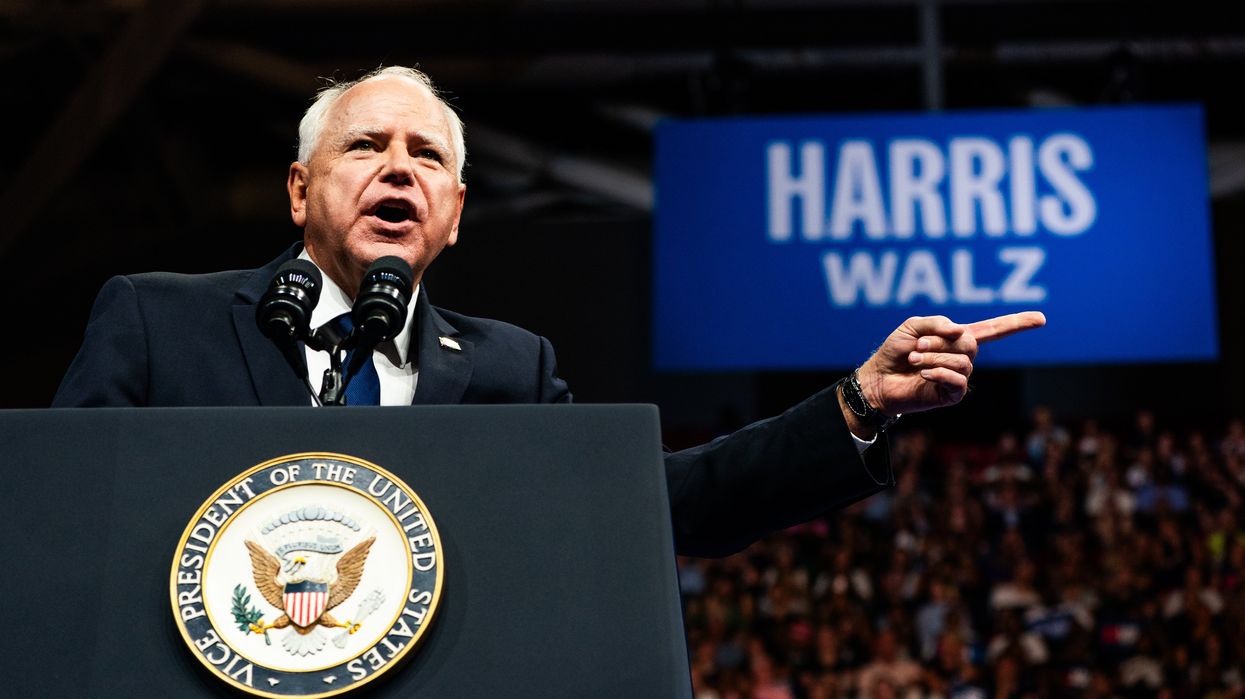Page is an American journalist, syndicated columnist and senior member of the Chicago Tribune editorial board.
While the saying may be true that candidates for vice president usually don’t make much of a difference in the ultimate success of presidential candidates, they do give us plenty to argue about.
That’s particularly true of the current contenders.
Vice President Kamala Harris seemed to barely have gotten the name of her chosen running mate, Minnesota Gov. Tim Walz, out of her mouth before the Republican vice presidential nominee, Sen. J.D. Vance from Ohio, raised allegations of “stolen valor” against Walz. “Stolen valor” is a colorful, colloquial and yet often appropriate term for an old and sometimes illegal offense — false claims about rank, honors or service in combat by military imposters.
Carrying echoes of the “swift boating” campaign against John Kerry, the 2004 Democratic presidential nominee who was accused of lying about his Vietnam service and decorations, the Trump campaign accused Walz of retiring from the military months ahead of his unit’s deployment to Iraq just to avoid combat.
As Vance, who served as a Marine press officer in Iraq, campaigned in Michigan on Wednesday, he questioned whether the timing of Walz’s departure from the military amounted to “stolen valor garbage.” “Do not pretend to be something that you’re not,” Vance said. “I’d be ashamed if I was saying that I lied about my military service like you did.”
But Walz did serve a total of 24 years in various units and jobs in the Army National Guard before retiring in 2005. Republicans have charged that he knew his unit might soon be deployed to Iraq. Vance was ramping up for a congressional bid that year. But even if he retired in order to run for Congress, he already had enough years in service to make that decision legally.
Republicans also have suggested Walz inflated his credentials by calling himself a “retired command sergeant major.” While he did serve in that rank for a time, he reverted back to the rank of master sergeant when he left the military because he had not completed coursework for the higher rank. A day after that story broke, the Harris campaign updated its online biography to correct the rank.
But now Vance also has been called “an imperfect messenger” in a report by CNN’s Brianna Kellar for using his correct job title of “combat correspondent,” since, like Walz, he did not experience actual combat.
That infuriated Vance, and I can understand. Since I conducted similar duties in the Army as a “public information specialist,” I’m not going to quibble about anyone who served honorably. In my view, both Walz and Vance fall in that category.
There’s a reason political campaigns fight these battles so intensely over military records. Americans have a long tradition of elevating their military leaders to positions of political power. Ulysses S. Grant, Teddy Roosevelt, Dwight D. Eisenhower and John F. Kennedy, among others, benefited from this effect.
Since I have been reporting and commenting on “stolen valor” controversies for years, I called a leading specialist on the topic, Doug Sterner, a decorated Vietnam veteran and author who launched the Home of Heroes website to document the real heroes and campaign against false claims. He also was a prominent backer of legislation to put an end to stolen valor claims.
”From the LEGAL standpoint, there is no Stolen Valor here” in the examples regarding Walz, he wrote in an email exchange. “When the Stolen Valor Act was struck down by the Supreme Court in 2012, the revised Stolen Valor Act covered only false claims of wearing CERTAIN (not all medals) and had to have a financial benefit to be prosecutable.”
That’s not too surprising, considering the Supreme Court’s efforts to safeguard free speech. One person’s “stolen valor” can be another person’s “war stories,” in which fact-checking is almost nonexistent.
The internet and the proliferation of media dedicated to partisan causes rather than objective fact-finding make sorting through the various claims all the more difficult. For all of us, a healthy dose of skepticism — whether in reaction to claims of bravery and heroism in battle or to critics asserting that those claims are lies — is in order.
The attacks on Walz and Vance, centered as they are on what frankly are quibbles, hardly seem worthy of so much airtime and consideration. Walz served honorably for 24 years. He should be proud of that. Vance volunteered for military service in a time of war and he should be proud of that. Let’s move on.
©2024 Clarence Page. Distributed by Tribune Content Agency, LLC.




















 From left to right: Gabriel Cardona-Fox, Bud Branch, Joe Concienne
From left to right: Gabriel Cardona-Fox, Bud Branch, Joe Concienne 